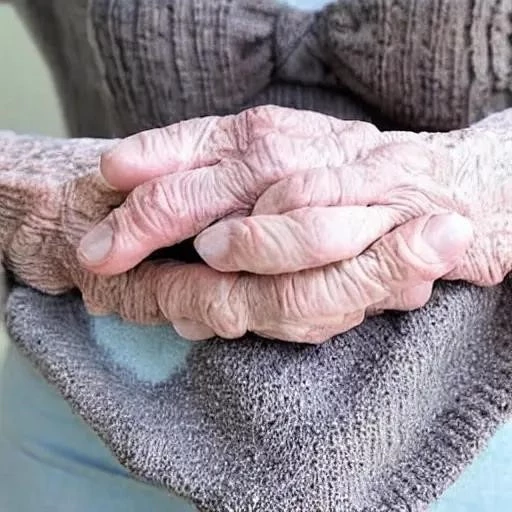In the vibrant tapestry of Sri Lankan politics‚ certain figures emerge with a gravitas that transcends mere policy debates‚ embodying the very spirit of a nation’s journey. Among these‚ Maithripala Sirisena stands as a compelling testament to perseverance‚ deeply rooted agrarian values‚ and an enduring commitment to public service. As of September 13‚ 2025‚ Sirisena marks his 74th year‚ a milestone that prompts a fascinating inquiry into how age‚ experience‚ and a lifetime dedicated to the public sphere continue to shape his perspective and‚ by extension‚ the trajectory of Sri Lanka itself. His journey‚ commencing from humble village beginnings to the highest office in the land‚ offers a powerful narrative of ambition tempered by wisdom‚ illustrating a profound connection to the island’s pulse.
Sirisena’s political career‚ spanning over five decades‚ reflects a remarkable evolution from a youthful activist to a national leader‚ challenging traditional power structures and advocating for change. His ascent to the presidency in 2015‚ a truly pivotal moment in Sri Lankan history‚ was driven by a powerful mandate for good governance and democratic reform‚ a vision he passionately articulated. This deep dive into his life reveals not just a politician‚ but a seasoned statesman whose every decision and public utterance is informed by a rich reservoir of personal history‚ a keen understanding of his country’s complexities‚ and an unyielding optimism for its future. Examining his remarkable trajectory‚ we uncover the layers of experience that have meticulously forged a leader of his unique caliber.
| Full Name | Pallewatte Gamaralalage Maithripala Yapa Sirisena |
| Date of Birth | September 3‚ 1951 |
| Current Age (as of Sep 13‚ 2025) | 74 Years Old |
| Birthplace | Yagoda‚ Gampaha District‚ Sri Lanka |
| Parents | Albert Sirisena (Father)‚ A. D. Nandawathie (Mother) |
| Nationality | Sri Lankan |
| Ethnicity/Religion | Sinhala‚ Theravāda Buddhist |
| Family Status | Married‚ with 2 daughters and 1 son |
| Education | Diploma in Agriculture (1973)‚ Diploma in Political Science (1980‚ Maxim Gorky Academy‚ Moscow) |
| Early Career Highlights | SLFP Youth League Secretary (age 17)‚ Purchasing Officer for Cooperative Society (1974)‚ Village Official (1976) |
| Key Political Roles | Member of Parliament (elected 1989)‚ Minister of Defence‚ Minister of Agriculture‚ Minister of Health |
| Highest Office Held | 7th President of Sri Lanka (2015-2019) |
| Political Affiliation | Sri Lanka Freedom Party (SLFP) |
| Reference Link | AP News Biography |
Sirisena’s narrative‚ truly unique among his peers‚ began in the tranquil village of Yagoda‚ within the Gampaha District. Growing up in a modest farming family‚ he was immersed in the agrarian rhythms of village life‚ an upbringing that indelibly shaped his worldview and instilled in him a profound empathy for the rural masses. This grounding‚ far removed from the urban political elite‚ provided an authentic perspective‚ cementing his commitment to uplifting ordinary citizens. His early education at local institutions‚ including Thopawewa Maha Vidyalaya‚ was quickly followed by an active engagement in the Sri Lanka Freedom Party’s Youth League at the tender age of seventeen‚ marking the very genesis of a formidable political journey. This early exposure to grassroots activism‚ coupled with an agricultural diploma‚ forged a leader who inherently understood the nation’s foundational economic and social realities‚ a perspective he would carry into every subsequent role.
Forging a path through the intricate labyrinth of Sri Lankan politics‚ Sirisena steadily ascended‚ meticulously building a reputation for integrity and dedication. His early professional life‚ commencing as a purchasing officer for a cooperative society and later as a village official‚ provided him with invaluable administrative experience‚ grounding his policy instincts in practical realities. By 1989‚ he had secured his first parliamentary seat‚ initiating a distinguished career marked by significant ministerial portfolios including Agriculture‚ Health‚ and Defence. Each role‚ diligently performed‚ not only deepened his understanding of national governance but also allowed him to connect with diverse segments of the populace‚ recognizing their aspirations and grievances. This consistent‚ upward trajectory culminated in his stunning victory in the 2015 presidential election‚ a truly unprecedented moment where an incumbent was unseated by a candidate from within his own party‚ driven by a powerful yearning for change and renewed democratic principles.
Assuming the presidency‚ Sirisena embarked on an ambitious agenda‚ promising sweeping constitutional reforms‚ a resolute crackdown on corruption‚ and an independent investigation into the harrowing allegations from the civil war. His tenure‚ though relatively brief from 2015 to 2019‚ was characterized by a genuine attempt to democratize institutions and foster reconciliation‚ bravely addressing issues long considered taboo. However‚ like any leader navigating complex geopolitical currents‚ he faced formidable challenges‚ most notably the devastating Easter Sunday bombings of 2019. This tragic event‚ occurring despite intelligence warnings‚ cast a long shadow‚ prompting intense scrutiny and ultimately influencing the political landscape. Yet‚ even in the face of such adversity‚ his commitment to democratic principles and national unity remained an undeniable cornerstone of his leadership‚ offering crucial lessons in crisis management and accountability that continue to resonate within the nation’s political discourse.
Today‚ at 74‚ Maithripala Sirisena remains a figure of considerable gravitas‚ his extensive political career offering a deep well of experience that few can rival. While his direct executive role concluded in 2019‚ his insights‚ garnered from navigating decades of political upheaval and national reconstruction‚ are incredibly valuable. He embodies a living archive of Sri Lankan modern history‚ capable of providing nuanced perspectives on current challenges and future opportunities. His journey‚ from a rural farmer’s son to the nation’s president‚ serves as an inspiring blueprint for aspiring leaders‚ demonstrating that genuine connection to the people and an unwavering commitment to national service can indeed pave the way to profound influence. Looking forward‚ his continued presence‚ even from the sidelines‚ offers a stabilizing force‚ a reminder of democratic resilience‚ and a hopeful vision for a future shaped by seasoned wisdom.
Ultimately‚ Maithripala Sirisena’s age is far more than a mere numerical fact; it symbolizes a reservoir of lived experience‚ a testament to enduring political engagement‚ and a profound understanding of Sri Lanka’s intricate socio-political fabric. His life story‚ meticulously unfolding over seven decades‚ underscores the transformative power of leadership rooted in empathy‚ perseverance‚ and a forward-looking vision. As Sri Lanka continues its journey‚ grappling with both historical legacies and contemporary aspirations‚ the insights offered by statesmen like Sirisena‚ seasoned by time and trial‚ will undoubtedly remain an indispensable compass‚ guiding the nation towards a brighter‚ more inclusive tomorrow. His legacy‚ continually evolving‚ represents a powerful narrative of a leader who‚ through every phase of his life‚ has undeniably shaped the destiny of his beloved island nation.






